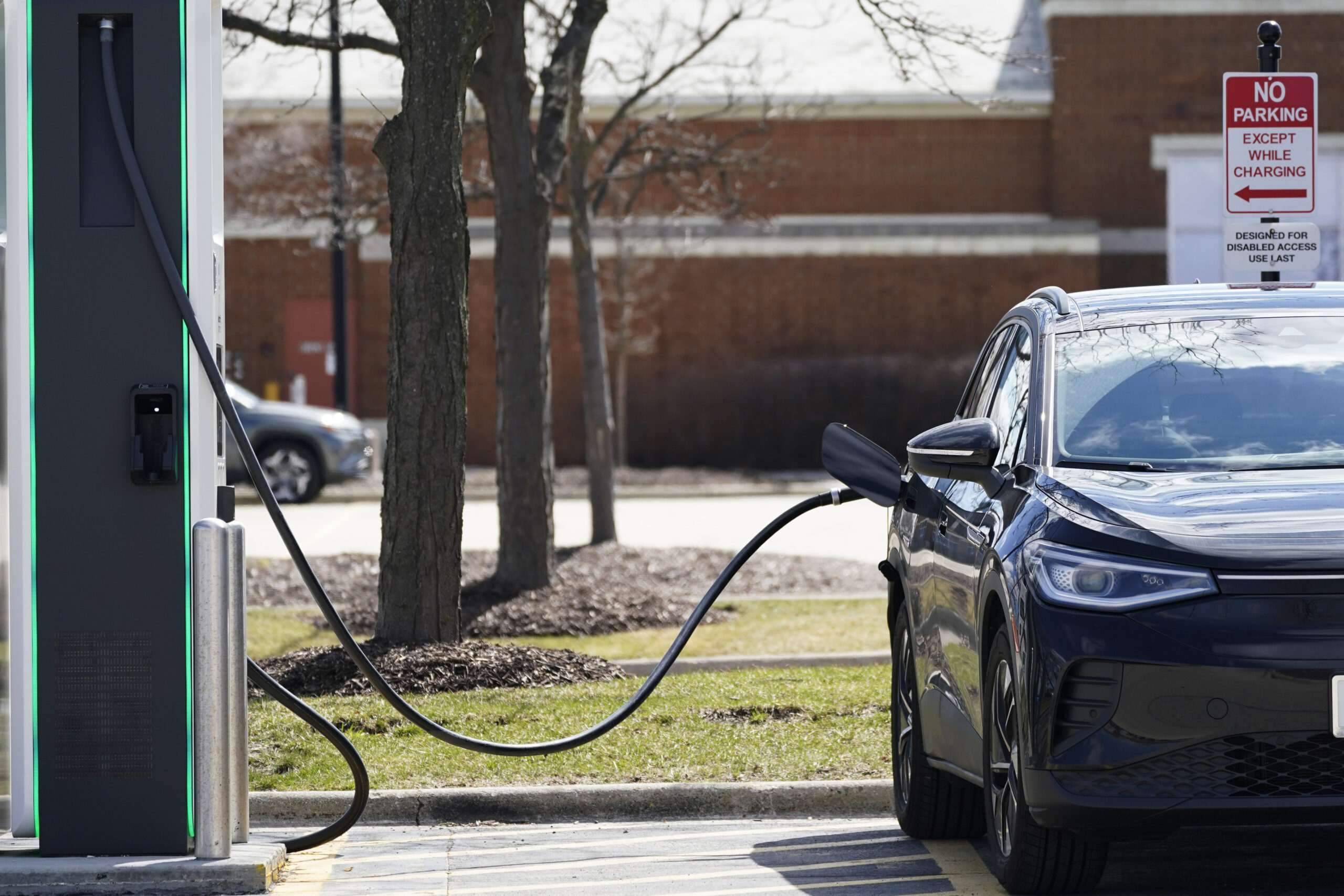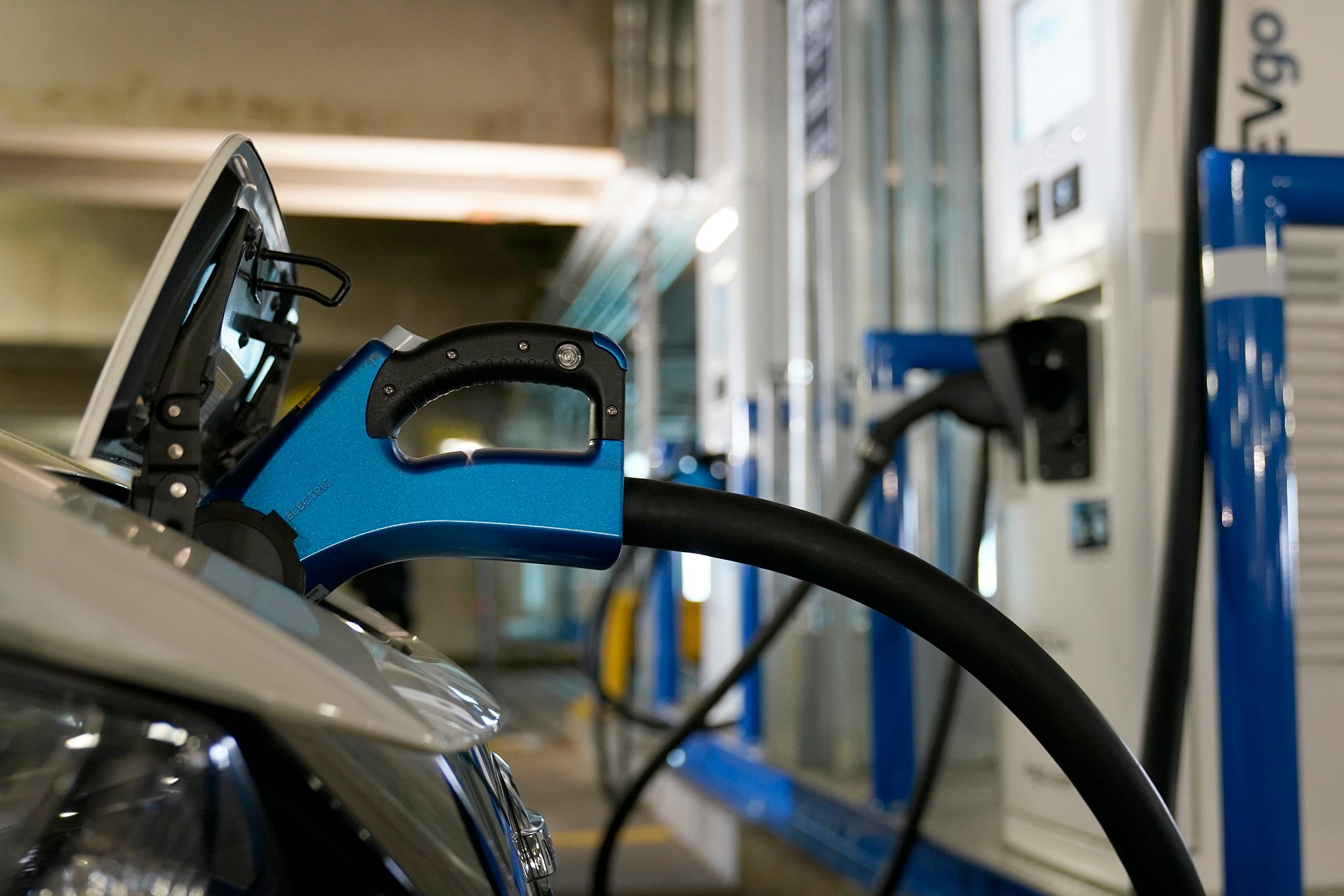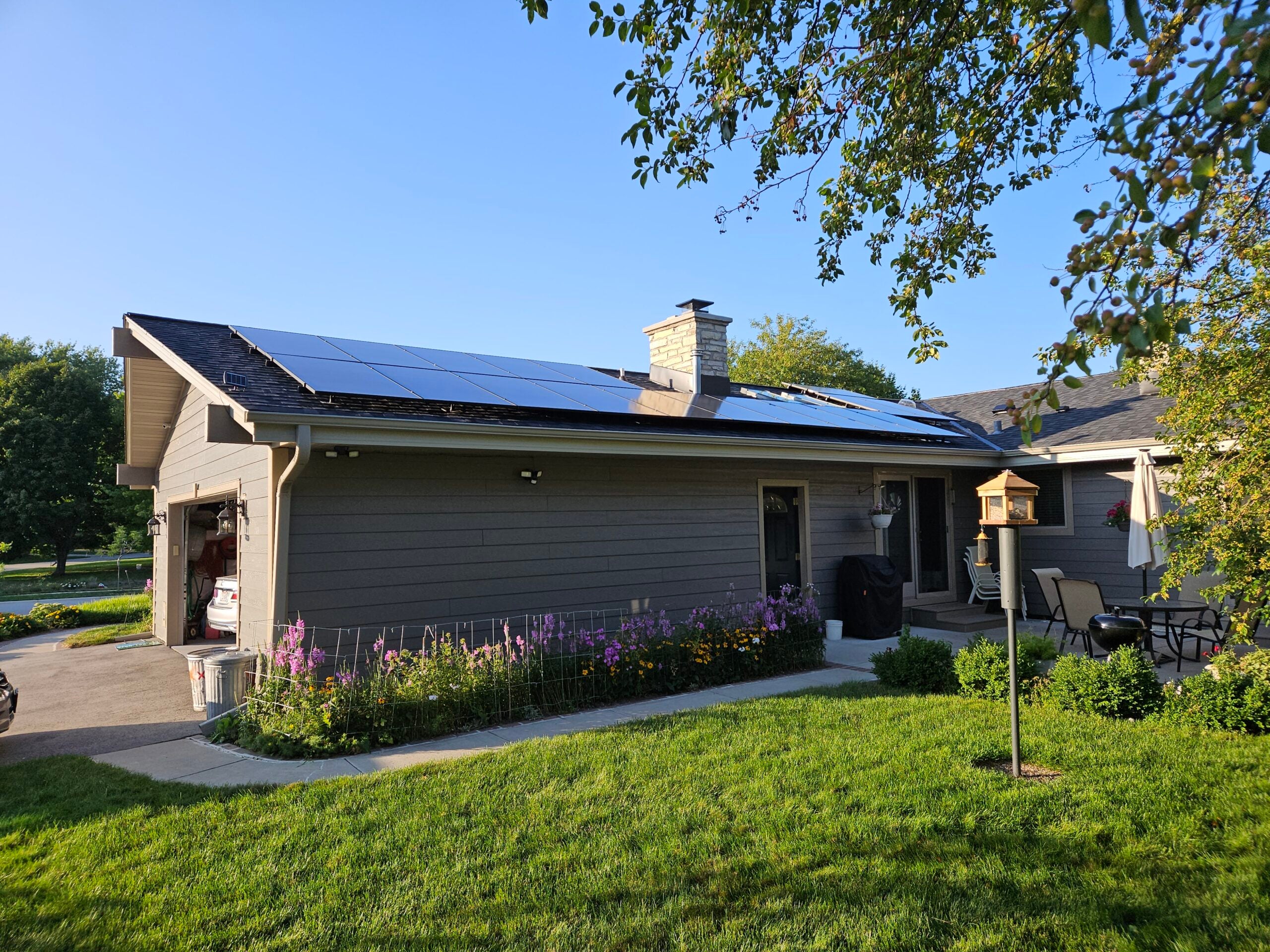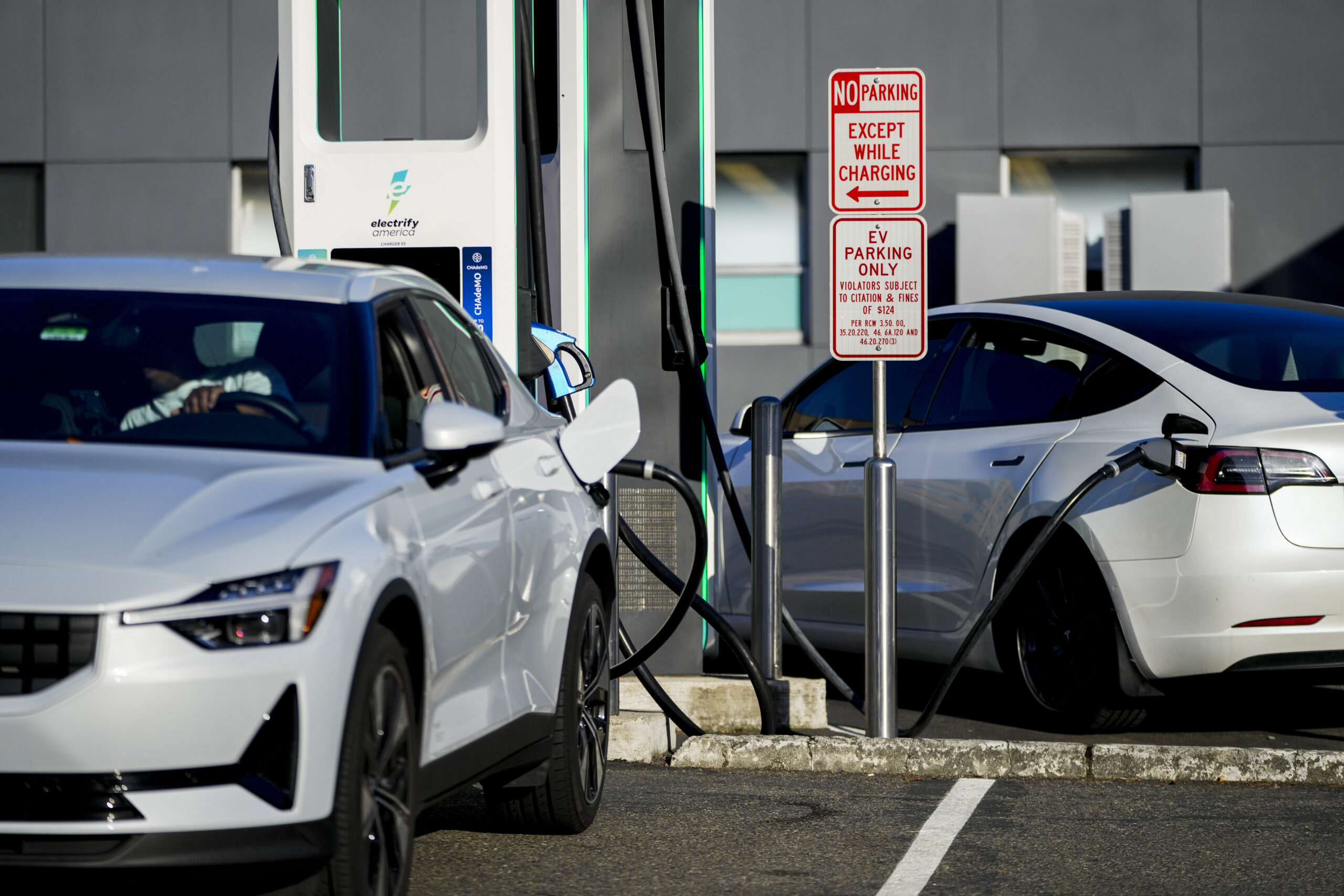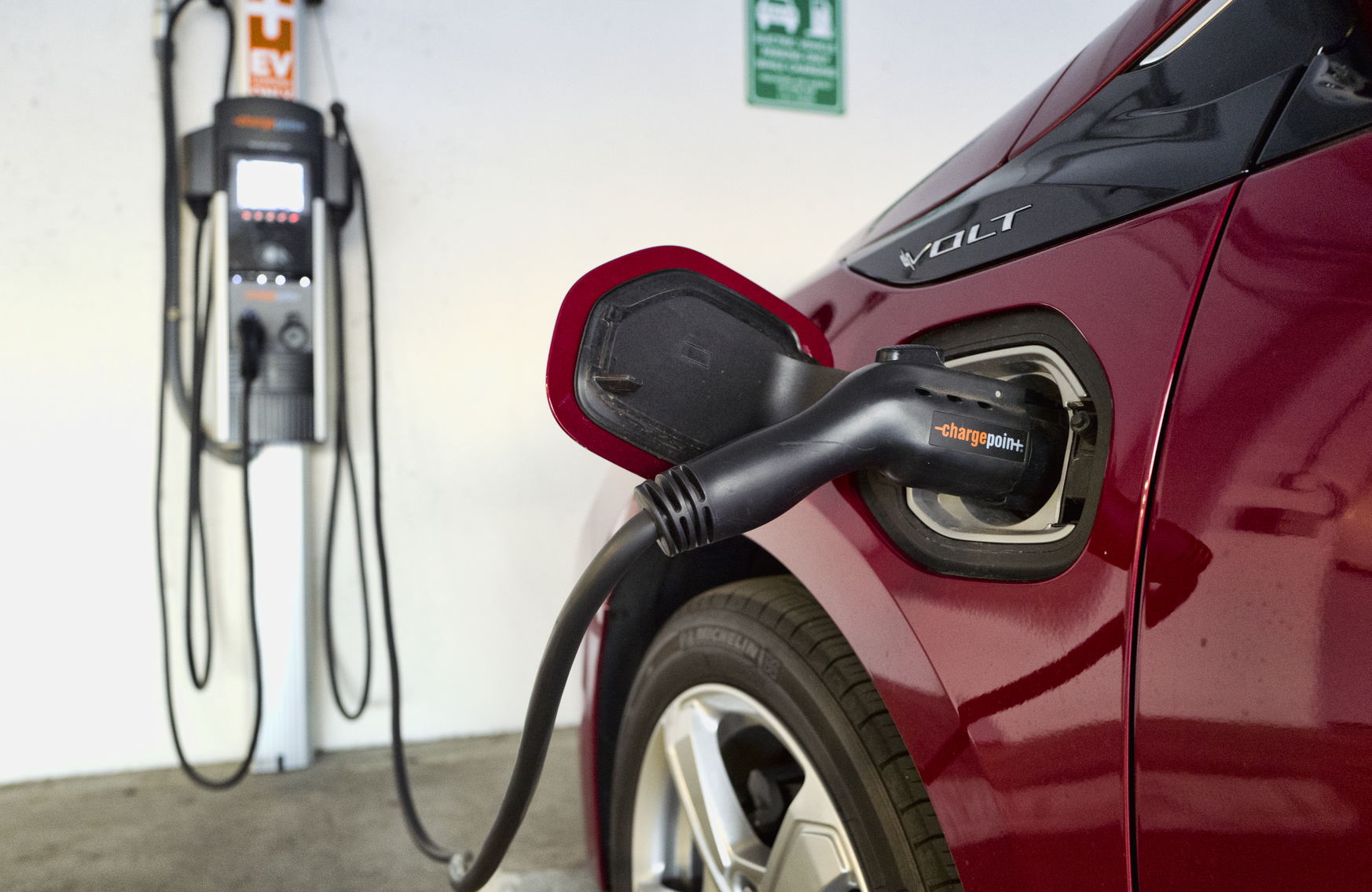A GOP bill that would bring Wisconsin one step closer to building a network of fast-charging stations for electric vehicles has cleared the state Legislature.
The state Senate almost unanimously passed the bill Tuesday that makes changes to state law allowing private businesses to own and operate charging stations without being regulated as utilities. It now heads to Democratic Gov. Tony Evers for his signature.
Currently, only utilities can sell electricity by the amount of power used, also known as charging by the kilowatt-hour. But the state needs to allow retail sale of electricity by charging station operators in order to access more than $78 million in federal money to build out electric vehicle infrastructure. Wisconsin was one of the last two states to make the change. The other is Nebraska.
News with a little more humanity
WPR’s “Wisconsin Today” newsletter keeps you connected to the state you love without feeling overwhelmed. No paywall. No agenda. No corporate filter.
Chelsea Chandler, climate, energy and air program director for Clean Wisconsin, said it’s a big deal for Wisconsin.
“That’s a big influx of investment into Wisconsin electric vehicle charging,” Chandler said. “Right now, we are not where I think a lot of people would like us to be on offering EV charging, and that is definitely holding back more people from making the switch from your traditional gas vehicles to electric.”

Wisconsin has 568 charging stations with 1,385 ports that the public can access, trailing most neighboring states in terms of charging infrastructure. The vast majority of them are not Level 3 or fast-charging stations. Without the change in state law, electric vehicle owners currently pay for the amount of time it takes to recharge, which can vary based on the vehicle or speed of charging stations.
Businesses that include convenience store chains like La Crosse-based Kwik Trip, 7-Eleven and the supermarket chain Hy-Vee support the legislation. State Sen. Howard Marklein, R-Spring Green, and state Rep. Nancy Vandermeer, R-Tomah, sponsored the proposal.
“I was proud to author the EV Charging legislation on behalf of all of the private-sector businesses who want an opportunity to participate in this emerging market,” Marklein said in a statement. “We don’t know how the future of electric vehicles will unfold in Wisconsin, but I am glad that the legislature has made it possible for the free-market to work.”
The Legislature already passed another bill in February that would authorize the Wisconsin Department of Transportation to set up and fund an EV infrastructure program. The state is preparing to build around 65 fast-charging stations statewide, and it would receive funding over the span of five years under the $1 trillion bipartisan infrastructure law.
Kaleb Vander Wiele, the state’s transportation electrification project manager, said it will review proposals from developers and tribal organizations to build stations after the application period closes on April 1. He said they hope to begin awarding funds early this summer.
“We are hopeful that we may see some form and type of construction beginning later this fall,” Vander Wiele said.
Federal funds would pay up to 80 percent of the cost to install charging stations. They would be placed every 50 miles along designated highways, including at restaurants, big box stores and convenience stations. That includes major interstates like I-94 and I-39. The state’s plan also includes routes like U.S. Highway 2 and Highway 51 in northern Wisconsin, which is lacking EV charging stations.
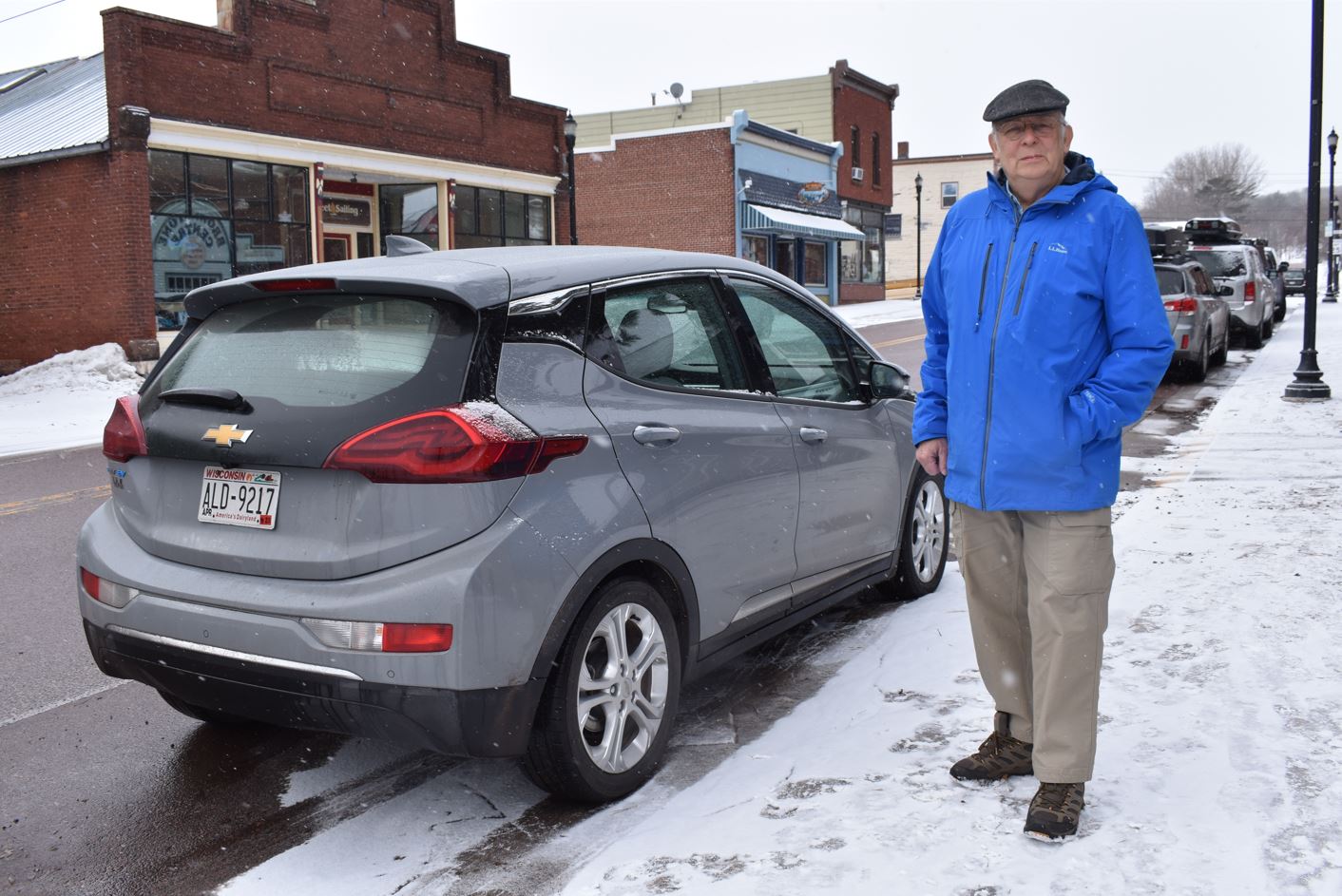
The bill passed on Tuesday included an Assembly amendment that prevents local governments from requiring private developers to install charging stations in order to obtain a building permit or other approvals. In Madison, a city ordinance requires some multi-family dwellings and commercial developments to install EV charging stations at a limited number of parking spots.
Madison Mayor Satya Rhodes-Conway said it would’ve been foolish for lawmakers to reject the legislation.
“While creating a framework for EV charging infrastructure in the state was crucial, it’s unfortunate that the legislature used this as an opening to further restrict the ability of local communities to control their own energy future by preventing them from requiring additional EV charging infrastructure in low-income or underserved areas of their community,” Rhodes-Conway said in a statement.
Local governments are generally prohibited from owning and operating charging stations under the legislation. But the bill would allow them to own slower Level 1 and Level 2 stations and offer them for public use free of charge. They could also have Level 3 or fast-charging stations if they’re solely used by local government.
Allison Carlson, executive director of the Wisconsin Local Government Climate Coalition, represents 23 communities that include cities like Madison, Eau Claire, Milwaukee and Stevens Point. Carlson said some communities like Eau Claire had been charging a fee for Level 2 and Level 3 chargers.
“They’ll need to work with their utility and other investors and just figure out who’s going to own that charging station going forward,” Carlson said. “Because they will no longer be able to own it or charge a fee for that Level 3 charger.”
Overall, Carlson said the legislation is significant and long overdue, noting it will help communities meet their clean energy goals.
The transportation sector accounts for the largest share of heat-trapping greenhouse gas emissions that contribute to climate change. Because they don’t burn gasoline, EVs are a lower-emissions option compared to an internal combustion engine, contributing less to climate change.
Wisconsin Public Radio, © Copyright 2026, Board of Regents of the University of Wisconsin System and Wisconsin Educational Communications Board.

